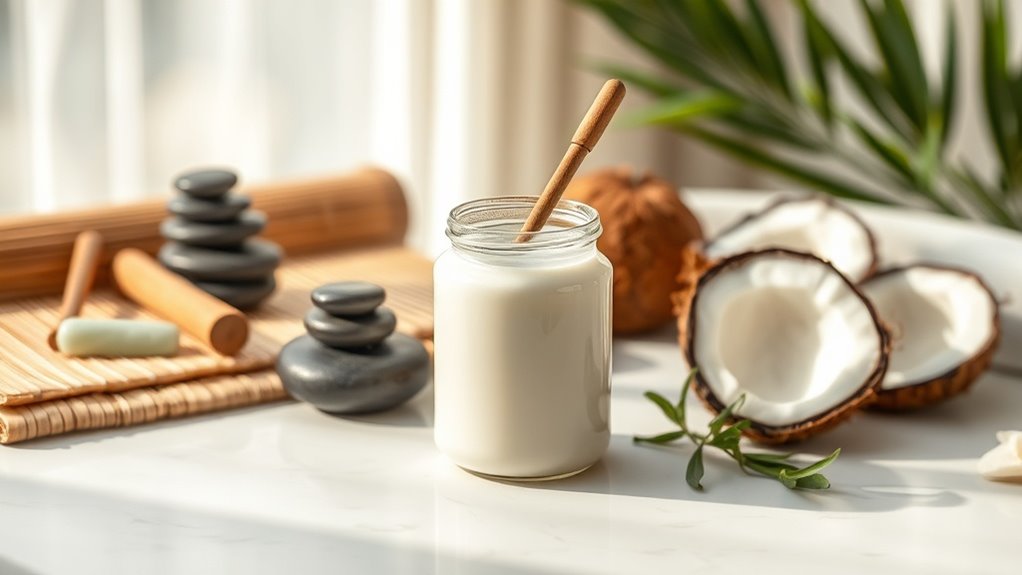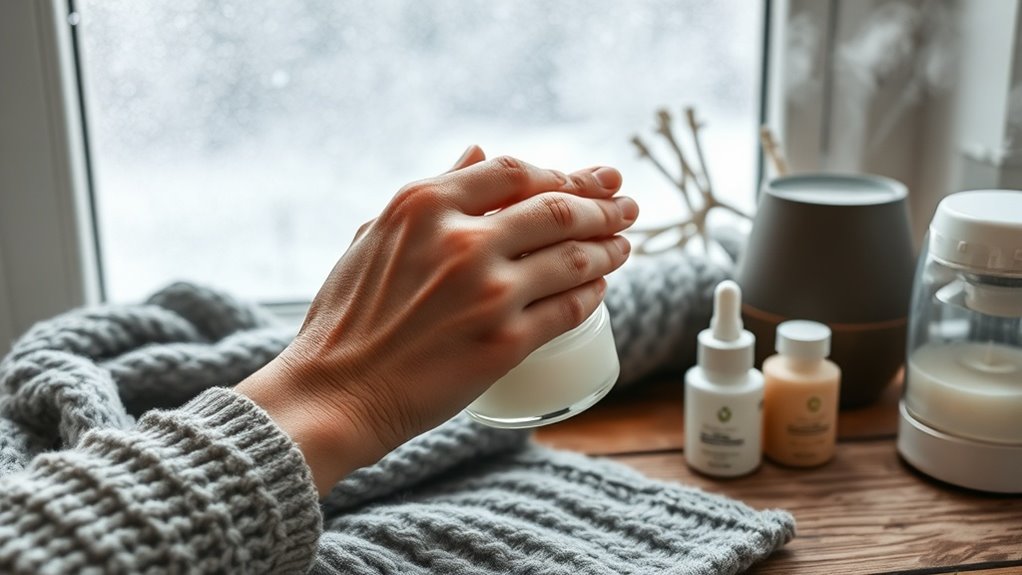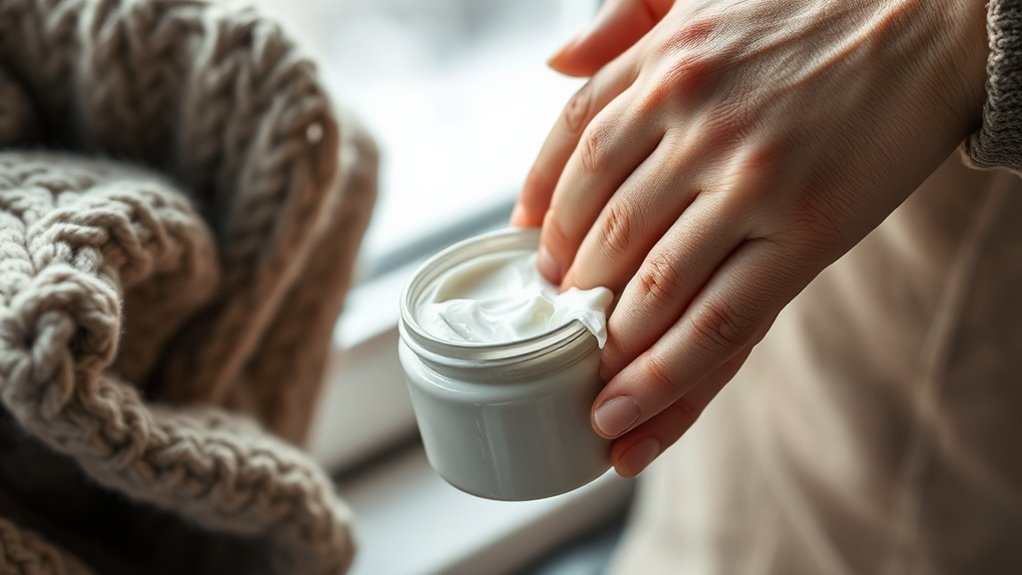Psoriasis Remedies That Make Skin Feel Better
You can find relief from psoriasis through several proven remedies that soothe irritated skin. Apply aloe vera gel to reduce inflammation, take oatmeal baths to ease itching, and use tea tree oil to combat scaling. Over-the-counter options like salicylic acid products and coal tar preparations can slow skin cell growth. Keep your skin well-moisturized with fragrance-free lotions, and manage stress through exercise and meditation. Understanding additional treatment approaches can help you develop a comprehensive management strategy.
Understanding Psoriasis and Its Impact on Skin
While psoriasis affects over 125 million people worldwide, this chronic autoimmune condition manifests as patches of red, scaly skin that can appear anywhere on the body. Your immune system speeds up skin cell growth, causing cells to build up rapidly on the surface.
These patches, known as plaques, can become itchy, painful, and inflamed.
You’ll notice that psoriasis relief becomes challenging as symptoms often cycle through periods of flare-ups and remission. The condition can impact your daily activities, self-esteem, and overall quality of life.
Understanding your specific triggers and symptoms is crucial for managing this persistent skin disorder effectively.
Natural Home Remedies for Psoriasis Relief
Many people seeking relief from psoriasis symptoms turn to natural remedies as complementary treatments to their prescribed medications.
You can apply aloe vera gel directly to affected areas to reduce inflammation and soothe itching.
Apple cider vinegar helps relieve scalp psoriasis when diluted with water.
Tea tree oil’s antimicrobial properties may decrease scaling, while coconut oil moisturizes and reduces inflammation.
Taking oatmeal baths can ease irritation, and turmeric supplements may help due to their anti-inflammatory effects.
Dead Sea salt baths can soften plaques and reduce scaling when used regularly.
Essential Oils and Plant-Based Solutions
Several essential oils and plant-based remedies offer promising relief for psoriasis symptoms when used properly.
Tea tree oil reduces inflammation and fights bacteria, while lavender oil soothes irritated skin and promotes healing. You’ll find aloe vera particularly effective at moisturizing and reducing redness.
When applying essential oils, always dilute them with a carrier oil like coconut or jojoba.
Oregon grape root extract contains compounds that slow excessive skin cell growth. Both chamomile and calendula oils demonstrate anti-inflammatory properties that can ease scaling and itching.
For optimal results, patch test any new oil before full application.
Over-the-Counter Treatment Options
Common over-the-counter treatments provide accessible relief for mild to moderate psoriasis symptoms.
You’ll find salicylic acid products that help remove scales and reduce inflammation. Coal tar preparations can slow skin cell growth and ease itching, while hydrocortisone creams offer temporary itch relief.
For moisturizing, look for products containing urea, lactic acid, or glycerin. These ingredients help lock in moisture and soften thick plaques.
You can also try zinc pyrithione or selenium sulfide shampoos to manage scalp psoriasis. Remember to patch test new products, as some ingredients may irritate sensitive skin.
Lifestyle Changes to Manage Psoriasis
Making strategic lifestyle adjustments can significantly improve your psoriasis symptoms and reduce flare-up frequency.
You’ll need to focus on maintaining healthy skin through consistent daily habits and avoiding known triggers.
-
Keep your skin moisturized by taking short, lukewarm showers and applying fragrance-free lotions immediately after bathing.
-
Manage stress through regular exercise, meditation, or yoga, as emotional tension can worsen psoriasis outbreaks.
-
Monitor your diet carefully by reducing alcohol intake, avoiding inflammatory foods, and increasing consumption of omega-3 rich foods like salmon and walnuts.
These evidence-based lifestyle modifications can help control symptoms and enhance your overall skin health.
Moisturizing and Skincare Best Practices
Proper moisturizing and skincare routines form the foundation of effective psoriasis management. You’ll need to apply thick, fragrance-free moisturizers immediately after bathing while your skin is still damp. Choose products containing ceramides, hyaluronic acid, or glycerin to lock in hydration.
Keep shower water lukewarm, as hot water can trigger flares. Limit bathing time to 10 minutes and use gentle, soap-free cleansers.
Pat your skin dry instead of rubbing. During severe flares, apply moisturizer multiple times daily, especially to affected areas.
Don’t scratch or pick at plaques, as this can worsen inflammation and increase infection risk.
When to Seek Medical Treatment
Although mild psoriasis can often be managed at home, you should consult a healthcare provider if your symptoms worsen or don’t respond to over-the-counter treatments.
-
Contact your doctor immediately if you develop joint pain or stiffness, as this may indicate psoriatic arthritis, which requires prompt medical intervention.
-
Seek treatment if your psoriasis covers more than 10% of your body, interferes with daily activities, or causes significant emotional distress.
-
Get medical attention if you notice signs of infection, including increased redness, warmth, swelling, or fever.
Your healthcare provider can prescribe stronger medications, including topical corticosteroids, systemic treatments, or biologics to effectively manage severe symptoms.




